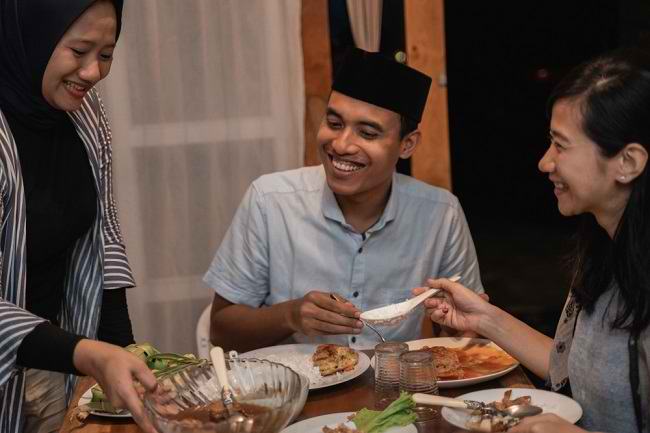5 Ways to Maintain Body Endurance While Fasting During a Pandemic
Fasting during the COVID-19 pandemic can be a challenge for some people. Considering that the pandemic is still ongoing in Indonesia, keeping the immune system strong is very important so that fasting can be carried out properly and the body is protected from COVID-19.
Fasting in Ramadan is one of the worships that must be followed by every Muslim in the world. Well, in order for fasting and other worship to run smoothly, the health of the body must always be maintained. One way that can be done is to maintain endurance, especially in the midst of the COVID-19 pandemic.
How to Maintain Body Endurance While Fasting
The main key to keeping the immune system strong while fasting during the COVID-19 pandemic is paying attention and maintaining a healthy lifestyle. Here are some ways you can do this:1. Eat nutritious food
Good nutritious food to nourish and provide energy for the body during fasting. Not only that, adequate nutritional intake through nutritious food and consumption of fruit according to the recommended daily portion can also strengthen the body's resistance to fight germ infections.
Some of the nutrients that need to be fulfilled include carbohydrates, protein, fiber, as well as various vitamins and minerals. Don't forget to also meet your fluid needs by consuming at least 8 glasses of water every day2. Exercise regularly
Even though you're fasting, it doesn't mean you can just laze around and not exercise. A study states that regular exercise in the month of Ramadan can actually strengthen the body's resistance and improve the function of the immune system in fighting bacterial infections.
A strong immune system is certainly very important during the COVID-19 pandemic to protect the body from being easily infected with the Corona virus.
You can take the time to exercise for 30 minutes, 3-5 times a week. You can also do it 1 hour after breaking the fast. However, it is not recommended to exercise excessively close to bedtime because it can make it difficult to sleep.
3. Get enough sleep
In addition to eating nutritious food and diligently exercising, you should not miss a sufficient night's sleep of at least 7 hours. Especially during the fasting month, you need to get up early to prepare for sahur. To work around this, go to bed early.This is because lack of sleep can lower the body's resistance so that the risk of getting COVID-19 can be greater.
4. Manage stress
Apart from fasting in the month of Ramadan, the COVID-19 pandemic has caused anxiety and worry for some people. In fact, stress can actually trigger inflammation in the body so that it affects the immune system
Therefore, to have a strong immune system, you need to manage stress well. Try doing various activities to relieve stress, such as exercising or doing activities that you enjoy.
5. Complete nutritional needs with fruits
It was previously mentioned that the consumption of fruit during sahur and iftar during Ramadan is very important because it can provide additional energy and keep the body healthy while fasting, especially in the midst of a pandemic that is still not over.
This is because the fruit is rich in vitamins and minerals as well as antioxidants which are good for maintaining the immune system. The recommended portion of fruit is 2-3 pieces per day or the equivalent of 150 grams.In addition to fresh fruit, fruit juice can also be your choice to meet your daily nutritional needs while fasting. The recommended serving of fruit juice is 1 glass of fruit juice per day. You can consume the fruit juice at suhoor or iftar.
That way, you stay healthy and strong while fasting in Ramadan and are not easily exposed to germs that cause infection, including the Corona virus.
Some types of fruit that are considered effective in increasing endurance during fasting are fruits that are rich in vitamin C, such as guavas, apples, oranges, bananas, mangoes, and melons.
In addition to implementing the methods above, you are still encouraged to always comply with health protocols, such as washing hands regularly, wearing masks, maintaining distance, reducing mobility, and avoiding crowds, in order to break the chain of transmission of the Corona virus during fasting.
p>Immediately complete the dose of COVID-19 vaccination to provide more protection for the body during the month of Ramadan and prevent severe symptoms if infected with COVID-19.
To be safer while fasting during a pandemic, especially if you have certain medical conditions or comorbid illnesses, you should consult a doctor to determine whether your condition is prime enough to carry out fasting.
Label : Healthy life
Comments
Post a Comment